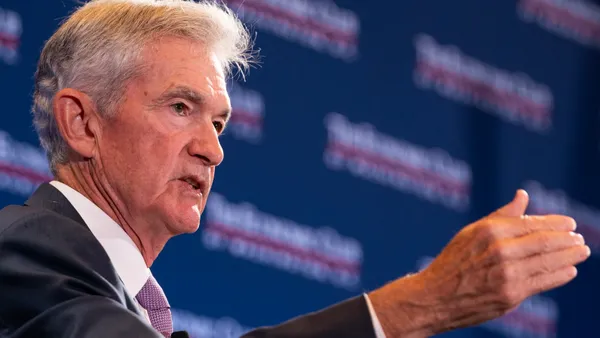Dive Brief:
- CFOs are taking on more responsibilities, expanding their skillsets and collaborating more closely with their C-suite peers as they tackle the disruptions from the pandemic and a lengthening list of other challenges, McKinsey said in a report.
- From 2018 through 2021, CFOs increased their oversight of procurement, investor relations, mergers and acquisitions, digital technology and enterprise transformation, McKinsey said, citing surveys of financial executives during both years. Meanwhile, they focused less on internal audit, pricing and regulatory compliance.
- “We are living in a very uncertain, volatile time,” according to Ankur Agrawal, a McKinsey partner. “CFOs have influence on more and more functions.”
Dive Insight:
CFOs during the past several months have had to recast many of their forecasts and internal plans in response to mounting external instability, including Russia’s invasion of Ukraine, the surge of inflation to a 40-year high, borrowing costs rising from record lows and a persistent threat of instability from COVID-19.
The prices of oil, grains and other commodities have surged worldwide since February, pushing up broad measures of inflation. In the U.S., the consumer price index on a 12-month basis jumped 8.5% in March and the producer price index, a measure of suppliers’ costs to businesses, soared 11.2%.
The World Bank, citing repercussions from the Russian invasion, said Monday it trimmed its estimates for global economic growth in 2022 to 3.2% from a 4.1% forecast in January.
“Downside risks cloud the outlook, including simultaneous omicron-driven economic disruptions, further supply bottlenecks, a de-anchoring of inflation expectations, financial stress, climate-related disasters and a weakening of long-term growth drivers,” the World Bank said.
While monitoring the impact from external shocks, CFOs are also focusing more on internal tasks such as digital transformation and adherence to environmental, social and governance best practices, Agrawal said.
To meet the challenges, many CFOs need to broaden the talent within finance teams, he said. “The scope of the function has expanded, so are you building the right bench, including folks with data science and engineering capabilities?”
CFOs during the budgeting cycle are more closely linking finance and strategy, he said, noting the growing importance of tools for financial planning and analysis (FP&A) to monitor for any “warning signals” to a business.
“The message to finance professionals is that the breadth of skills required, the knowledge base you gain, the types of roles you aspire to play – that canvas is broader today than it ever was,” Agrawal said.
CFOs are adjusting to their expanding role by delegating much of the accounting responsibilities, Agrawal said. Or they are giving subordinates greater decision-making power, with the heads of FP&A, procurement, information technology and real estate directly reporting to CFOs.
During the pandemic, CFOs sped up adoption of robotic process automation, advanced finance analytics and other technologies, upgrading closer to real time scenarios planning and the tracking of cash and the business outlook, according to Christian Grube, a McKinsey partner.
CFOs have a choice as they embrace digital technology, Grube said.
“They can decide whether they want to focus on driving digitization in their own function, whether they want to become digital champions for the entire organization, or they want to do both,” he said.
“Rather than make decisions based on the available tools or systems, they should define the road map for the function for the organization and apply a cost-benefit analysis to prioritizing the different digital investments,” Grube said.
CFOs frustrated in their efforts to advance digital transformation most often lack a formal mandate for their efforts, according to Meagan Hill, an associate partner at McKinsey.
“Once transformations are underway, peers say CFOs are most valuable when they focus on core finance activities essential to tracking and managing transformation,” Hill said. “But CFOs say they should spend more time leading non-core finance activities such as developing employee capabilities and role-modeling new mindsets and behaviors.”















